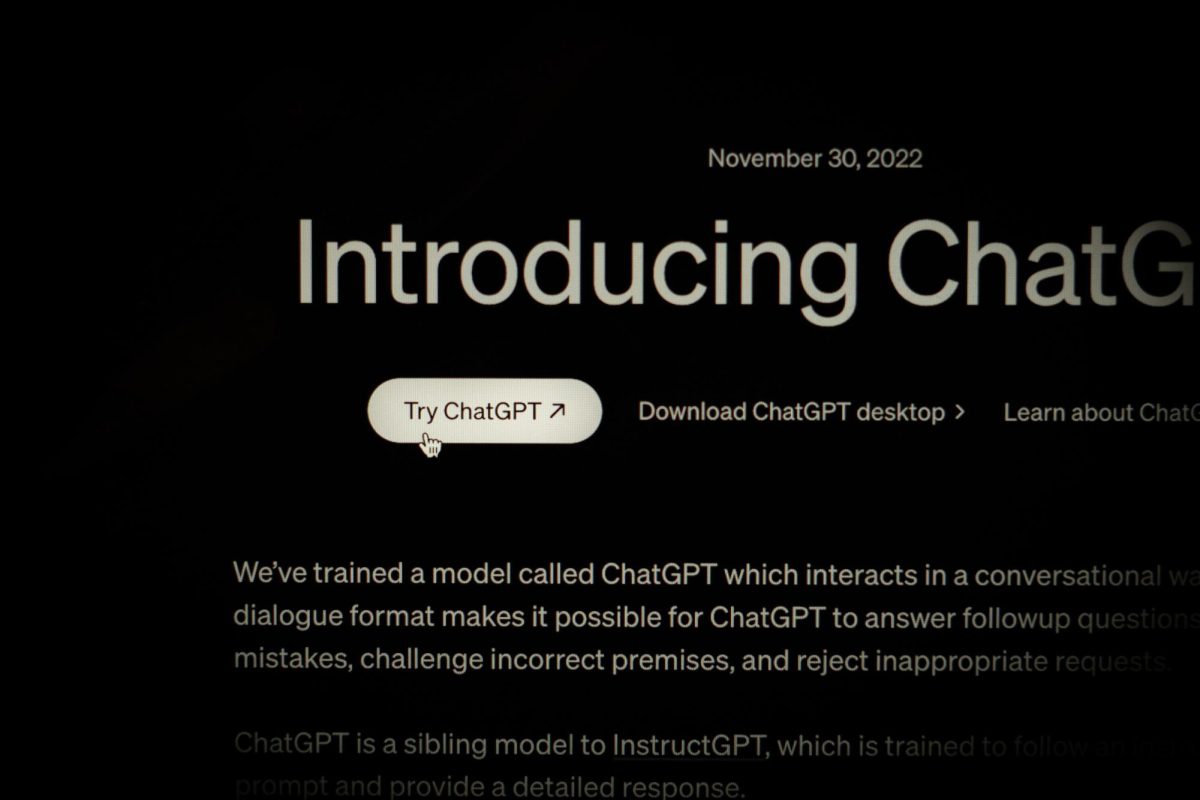
Mason Fullerton '25
Artificial Intelligence (AI) is something that has sparked a lot of controversy and discussion when it comes to its use in various situations. The education system is no exception to this. There are mixed opinions on the topic of if and how AI should be used in a classroom setting.
According to the New York Times, when referring to the increasing revenue of Open AI, the parent company of Chat GPT, “The documents show a spike in growth after ChatGPT began allowing people to use the service without creating an account or logging in.”
Recently AI has become more accessible, specifically within students. With the open use of tools like ChatGPT, it has become easier than ever to access the capabilities of AI. AI can answer almost any question you might have, ranging from AP calculus to writing you an essay in Spanish within seconds, which has sparked discussion on its ethics when used in a classroom setting.
According to Forbes, when teachers were asked about their concerns when it comes to using AI in the classroom, 65% expressed concern about academic honesty and plagiarism, and about 23% showed concern for the automation of manual tasks.
According to a National Education Association taskforce evaluating AI in school, “Recognizing the seismic potential of this technology led the Task Force to believe that, like the internet, access to safe and effective AI-enhanced technology should be viewed much like a modern-day utility and made available (equitably) to every student of every economic status.”
Through the doors of AFS, AI has been a subject that has been widely talked about.
For some students at AFS, AI has been a part of their everyday education.
We decided to interview a student from each grade at AFS. We kept their names anonymous, for the sake of honesty and confidentiality.
In response to the question “How often do you use AI for assignments and big projects?” a ninth grade student said, “Everyday, 100% of the time.”
This statement from a freshman supports the existence of the concerns expressed by the teachers in the Forbes study. The student from the newest class of high school students is already using AI almost religiously to complete their assignments. Does this spell a decline in attention and learning in upcoming students?
They did not, however, find that AI was helping them with comprehension (even though it does provide explanation) but rather helps with completing assignments in a timely manner that may have otherwise taken massive amounts of time.
The ninth grade student said, “It’s not necessarily beneficial to my learning but it helps me get my work done in a timely manner.”
What was interesting from our interviews is the difference in responses from the senior we interviewed and the freshman.
The twelfth grade student answered that they “rarely use AI, (and only use AI) for small assignments that have questions about historical events.”
The senior said that they used AI the most in history, whereas the freshman said, “math or english.”
All four students we interviewed, who were all in different grades, agreed that AI will change education in the future.
The ninth grade student said, “Students will become less focused in class, (therefore) learning will have to be revolutionized to keep up.”
The tenth grade student believes that AI will “benefit education, because it is constantly developing.”
If you are using AI it is important to have an understanding of what good it can be used for but also how it can impact learning and comprehension in a negative way. It is important to create a balance between the two.